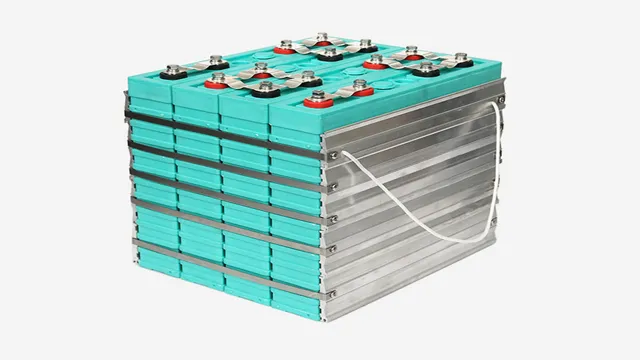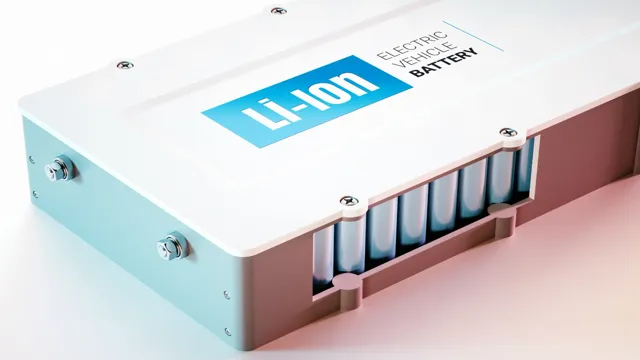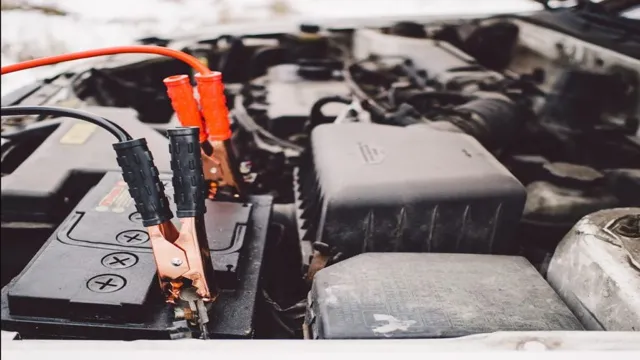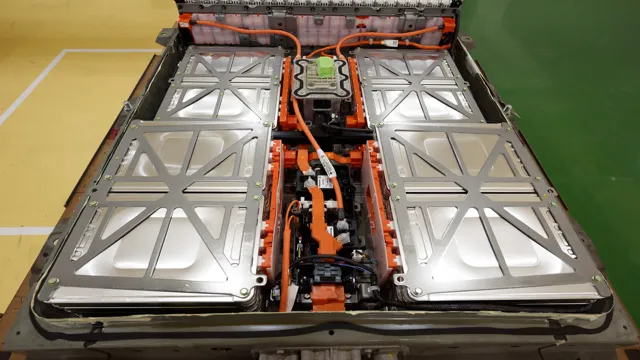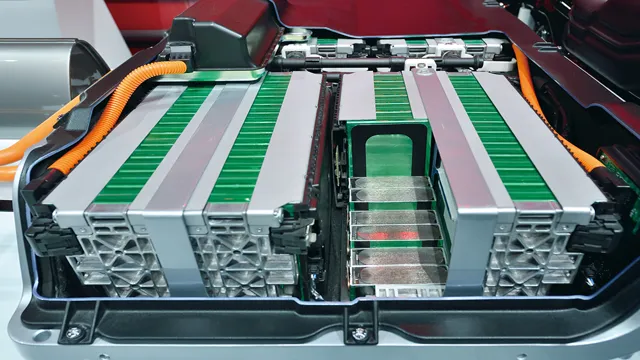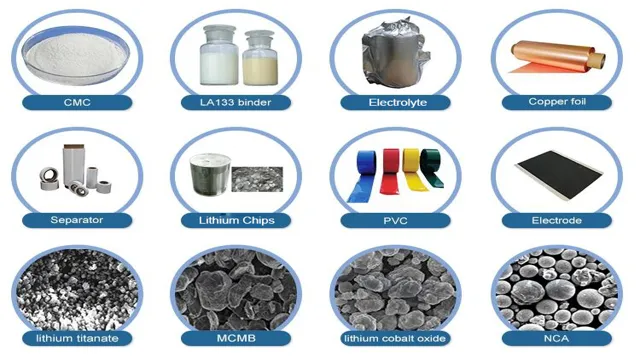Powering Up: Discovering the Best Batteries for Your Electric Car
When it comes to owning an electric car, one of the most important features to consider is the battery. After all, the battery is what powers the vehicle and determines how far you can drive on a single charge. As such, choosing the best battery for your electric car is crucial.
With so many options available on the market today, however, finding the right one can be quite daunting. But don’t worry – we’ve got you covered. In this blog, we’ll explore some of the best batteries for electric cars, highlighting their advantages and drawbacks, so you can make an informed decision and enjoy a smoother and more efficient driving experience.
Types of Batteries
Choosing the right battery for your electric car is crucial to its performance. There are several types of batteries available, including lithium-ion, nickel-metal hydride, and lead-acid batteries. Lithium-ion batteries are popular due to their higher energy density and longer lifespan.
They are also lightweight, making them perfect for electric cars. Nickel-metal hydride batteries are affordable and have good power density, but they can be quite heavy. Lastly, lead-acid batteries are the most affordable, but they are also the heaviest and have the shortest lifespan.
When it comes to the best batteries for an electric car, lithium-ion batteries are the preferred choice. They offer the best performance and longevity, making them a great investment in the long run. However, the cost may be a factor for some consumers, so it’s important to do your research and determine what will work best for your needs and budget.
Lithium-Ion Batteries
Lithium-ion batteries are the most commonly used batteries in today’s world due to their high energy density, low self-discharge rate, and long cycle life. These batteries come in various types and sizes, each catering to different applications. The most common types are cylindrical, prismatic, and pouch batteries.
Cylindrical batteries are widely used in devices that require high power output, such as laptops and power tools. Prismatic batteries have a flat, rectangular shape, making them ideal for thin devices like smartphones and tablets. Pouch batteries are the thinnest and lightweight of the three, mainly used in wearables and IoT devices.
Regardless of their type, lithium-ion batteries work on the same principle of transferring ions between the anode and cathode through an electrolyte. This movement of ions produces an electrical charge that powers electronic devices. Understanding the different types of lithium-ion batteries will help you choose the best one for your device, ensuring optimal performance.
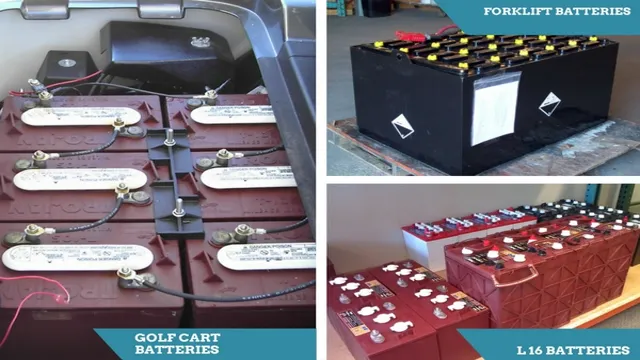
Nickel-Cadmium Batteries
One of the most utilized rechargeable batteries is the Nickel-Cadmium (Ni-Cd) battery. This type of battery has been used for decades in various applications. Ni-Cd batteries have a high energy density, which means they are capable of storing a lot of energy in a small package.
They are also known for their ability to handle high discharge rates, making them a great choice for power tools and other devices that require a lot of power in a short amount of time. However, one downside of Ni-Cd batteries is that they contain toxic and harmful chemicals, such as cadmium, which can be harmful to the environment if not disposed of properly. Nonetheless, Ni-Cd batteries remain a popular choice due to their durability and long cycle life, which means they can be charged and discharged many times.
Overall, Ni-Cd batteries are a reliable and efficient type of rechargeable battery, but proper care and disposal are crucial to ensure their safety and longevity.
Factors to Consider
When it comes to choosing the best batteries for an electric car, there are several factors to consider. First and foremost, you want to look at the battery’s range to see how far it can go on a single charge. This is especially important if you’re going on long trips or commuting long distances.
Another important factor is the battery’s charging time. You don’t want to be stuck waiting around while the battery charges, so it’s important to find a battery that can charge quickly. It’s also a good idea to look at the battery’s life expectancy.
Investing in a high-quality battery with a longer lifespan can save you money in the long run. Additionally, you’ll want to consider the battery’s weight and size, as this can affect the overall weight and handling of your electric car. Lastly, make sure to choose a battery from a reliable manufacturer with a good reputation in the industry.
When it comes down to it, finding the right battery for your electric car depends on your individual needs and preferences.
Range and Capacity
When it comes to choosing an electric vehicle (EV), range and capacity are two crucial factors to consider. The range of an EV refers to how far it can travel on a single charge, while capacity refers to the size of the battery and how much energy it can store. These factors can have a significant impact on your driving experience and should not be overlooked.
A larger battery and longer range usually means a higher price tag, but it can also provide peace of mind and convenience. On the other hand, a shorter range and smaller capacity may be more affordable and suitable for daily commutes. Ultimately, it’s important to consider your driving needs and habits to determine which range and capacity is right for you.
Keep in mind that your driving behavior, such as your speed, terrain, and weather conditions can all affect your EV’s range and capacity. Thus, it’s always best to do your research and test drive different EVs to find the one that fits your lifestyle and budget.
Charging Time and Availability
When it comes to electric vehicles, one of the biggest concerns for many people is how long it takes to charge them up and how readily available charging stations are. There are a few factors you’ll want to consider when deciding if an electric vehicle is right for you based on charging time and availability. Firstly, the size of the battery and the type of charger you’re using will affect charging time.
A larger battery will take longer to charge, and using a standard outlet will take longer than using a specialized charging station. It’s also important to consider how long you typically drive in a day and whether or not you have access to charging stations at work or home. If you have a long commute or drive frequently, you’ll want to make sure that there are sufficient charging stations along your route.
Lastly, you’ll want to look into the availability of charging stations in your area. If there aren’t many charging stations nearby, you may have trouble finding a spot to charge up during longer trips. By considering these factors and taking advantage of the resources available, such as electric vehicle charging maps and apps, you can make an informed decision about whether or not an electric vehicle is the right choice for you.
Durability and Reliability
When it comes to purchasing a product, durability and reliability are two critical factors that we should consider. These two factors ensure that the product will last long and function as expected. We all want to invest our money in something that will not break down easily or require frequent repairs.
Durability refers to the ability of a product to withstand wear and tear without deteriorating, while reliability is the ability of the product to perform consistently without any malfunctions or breakdowns. It is essential to choose products from reputable brands that have a track record of producing durable and reliable products. Additionally, we should look for products with warranties that cover repairs or replacements in case of any defects.
Choosing a durable and reliable product not only guarantees that it will last long, but it also saves us money in the long run by reducing repair costs and eliminating the need for frequent replacements.
Top Battery Brands
When it comes to electric cars, having a reliable battery is crucial. There are several top battery brands on the market that are known for their quality and endurance. One such brand is Tesla with their cutting-edge lithium-ion batteries, which allow their EVs to travel upwards of 300 miles on a single charge.
Another popular choice is LG Chem, whose batteries provide high energy density and stable performance. Panasonic is also a trusted brand, supplying batteries to several automakers, including Tesla. For those looking for a more affordable option, Nissan’s Leaf uses a cost-effective battery made by AESC.
Ultimately, the best batteries for an electric car will depend on individual needs and driving habits. It’s important to do your research and consult with experts before making a decision. But no matter which brand you choose, it’s important to invest in a high-quality battery to ensure a smooth and reliable driving experience.
Tesla
As a leader in the electric vehicle industry, Tesla has made tremendous strides in developing and producing some of the most advanced battery systems on the market. Their battery brand, Tesla Energy, has proven to be one of the most popular and reliable choices for both residential and commercial energy storage solutions. In fact, Tesla Energy was recently named as one of the top battery brands by EnergySage, a leading online comparison-shopping marketplace for solar energy systems and services.
The brand is known for its high energy density, long-lasting performance, and cutting-edge technology. With the growing demand for renewable energy options, Tesla Energy is paving the way for a more sustainable future. Whether you’re looking to power your home or your business, Tesla Energy is definitely worth considering.
LG Chem
LG Chem is one of the leading battery brands in the world. Their products are highly regarded for their durability, reliability, and high performance. LG Chem is at the forefront of battery innovation, constantly pushing the limits of what is possible with current battery technology.
They are responsible for creating some of the most advanced batteries on the market, such as those used in electric vehicles and renewable energy storage systems. In addition to their impressive technical capabilities, LG Chem is committed to sustainability and reducing their carbon footprint, making them an excellent choice for environmentally conscious consumers. If you’re looking for a high-quality battery that delivers on performance and sustainability, look no further than LG Chem.
Their products are sure to meet and exceed your expectations.
Conclusion
In the end, when it comes to the best batteries for an electric car, the choice is clear: it all boils down to power, durability, and efficiency. Just like a runner needs the right shoes to go the distance, electric cars need the right batteries to drive smoothly and for a long time. So, go ahead, make the switch to an electric car and enjoy the ride with the best batteries powering your vehicle.
Remember, the future is electric, and the batteries are the engines that drive us forward!”
FAQs
What are the best batteries for an electric car in terms of performance?
Lithium-ion batteries are currently considered the best batteries for electric cars in terms of performance. They offer high energy density, fast charging capabilities, and a longer lifespan compared to other battery technologies.
How much do the best batteries for an electric car cost?
The cost of the best batteries for an electric car varies depending on the type of battery and its capacity. On average, a lithium-ion battery for an electric car can cost anywhere from $5,000 to $15,000.
What is the lifespan of the best batteries for an electric car?
The lifespan of the best batteries for an electric car depends on various factors such as the type of battery, charging habits, and environmental conditions. On average, a lithium-ion battery can last anywhere from 8 to 10 years.
Can the best batteries for an electric car be recycled?
Yes, the best batteries for an electric car can be recycled. Most of the materials used to make these batteries, such as lithium and cobalt, are valuable and can be reused. Recycling also helps prevent environmental damage caused by improperly discarded batteries.
